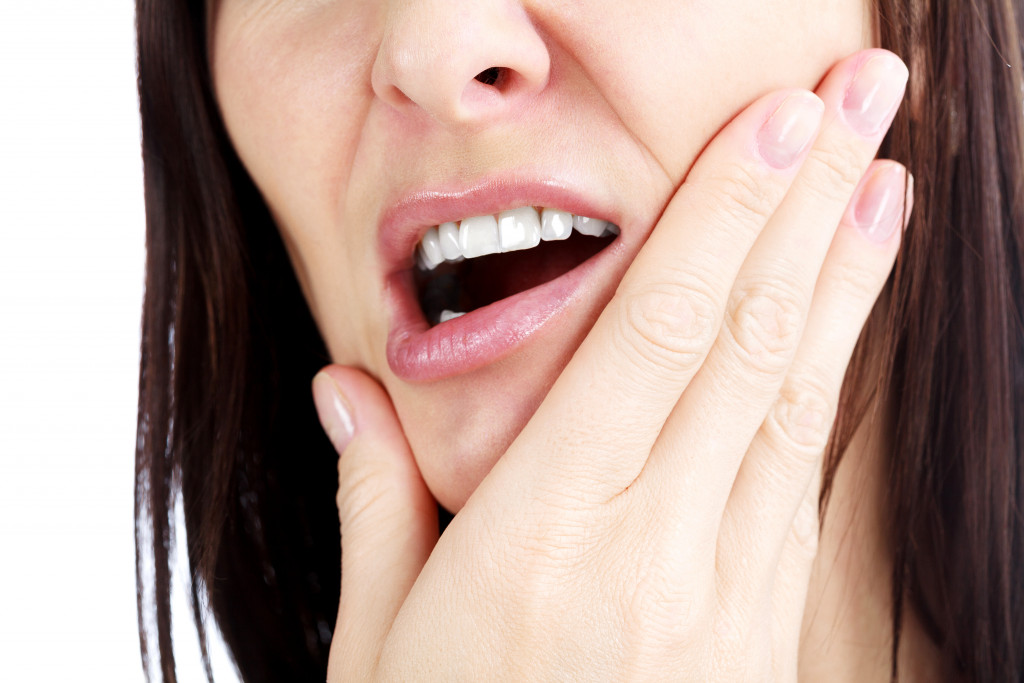Human gums are a vital part of our oral health. They are the soft tissues that line the mouth and hold people’s teeth in place. People’s gums are responsible for protecting their teeth from bacteria and plaque, and they also help them to chew and speak correctly. Unfortunately, however, gums are susceptible to all sorts of problems, and these problems can usually lead to pain. Here are a couple of reasons why your gums hurt and how to deal with them.
Dental Infection
The most common reason your gums might hurt is a dental infection. This infection can occur in your teeth, gums, or jawbone. It is usually caused by bacteria that build up in your mouth and form plaque.
Plaque is a sticky substance that can harden your teeth and cause tartar to form. Tartar is a hard deposit that a dentist can only remove. If you have a dental infection, you might notice that your gums are red, swollen, and bleeding. You might also have bad breath or a foul taste in your mouth. There are various ways you can deal with a dental infection. Your first option is to get the plaque removed.
Plaque Removal
If you have a dental infection, you must remove the plaque. A dentist or hygienist can do this, and they will use a unique tool to remove the plaque from your teeth. This process is called scaling. Once the plaque is removed, your gums should start to heal.
Root Canal
If the scaling doesn’t work, you might need a root canal. This is a procedure where the dentist removes the infected tissue from your tooth.
Saltwater Rinse
You can try rinsing your mouth with salt water if the infection isn’t too severe. This will help to reduce the swelling and pain in your gums.
Dental infections are often the result of poor oral hygiene. You can help to prevent them by brushing and flossing your teeth regularly. You should also see a dentist for regular checkups.

Gingivitis
Gingivitis is an inflammation of the gums that can cause bleeding, receding gums, bad breath, and tooth decay. It is caused by plaque, much like dental infections. However, the difference is that the gum tissue is inflamed but not infected with gingivitis. Gingivitis can be treated with good oral hygiene and professional dental cleaning. However, if it gets worse, it can lead to periodontitis, an infection of the gum tissue. Gingivitis is a prevalent condition and is another leading cause of gum pain.
Lack of Teeth
If you don’t have any teeth, your gums might hurt. This is because there is nothing to support your gums. Without teeth, your gums can become weak and start to sag. This can lead to pain and discomfort. Getting high-quality replacement teeth is the standard solution to this problem. These are teeth that can be permanently affixed to your mouth, and they will restore the function of your gums. It can also keep your gums protected from infection
Dentures are also a decent choice. They are not as strong as implants, but they are still much better than nothing. Preventing your teeth from falling off in the first place is the best option. You can do this by taking care of your teeth and visiting the dentist regularly.
Canker Sores
Canker sores are small ulcers that can form on your gums. They are usually white or yellow and can be extremely painful. Canker sores are caused by stress, hormones, or certain foods. There is no cure for canker sores, but there are ways to make them go away faster. For example, you can use a numbing gel or take pain medication.
Canker sores usually go away on their own after a week or two. However, if they don’t, you should see a doctor. In rare cases, canker sores signify something more serious, such as cancer.
Mouth Sores
Mouth sores come in many different forms. The most common are cold sores, which are caused by the herpes virus. Canker sores and other conditions can also cause mouth sores.
If you have a mouth sore, there are various ways you can treat it. You can use a cold compress to reduce the swelling and also take pain medication or use a numbing gel. Most mouth sores will go away within a week or two. However, if they don’t, you should see a doctor.
There are many different reasons why your gums might hurt. However, the ones above are the most common. If you are experiencing pain in your gums, you should see a dentist. They will be able to diagnose the problem and recommend a treatment plan. You can also treat it yourself if it’s not too severe.

